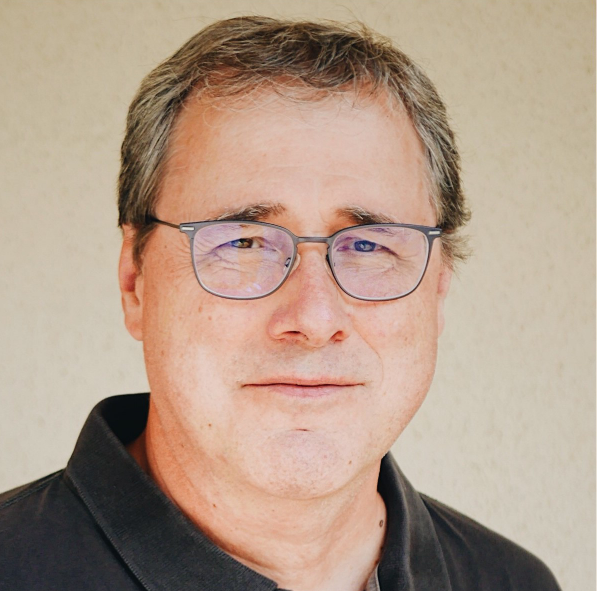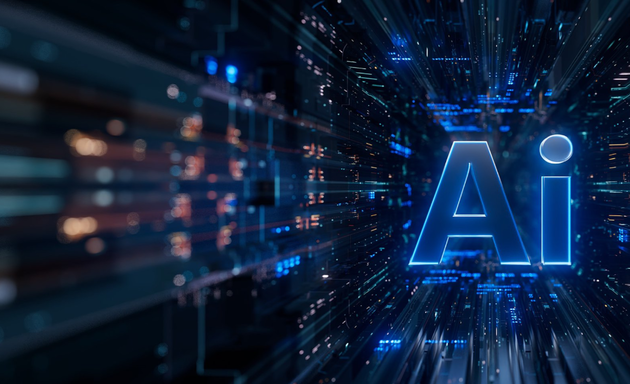Editor's Note:
In the Dialogue with Scientists series, National Business Daily (NBD) examines how the frontiers of discovery are shifting in the wake of the 2025 Nobel Prizes. From molecular design to life’s origins, the conversations with the pioneering minds reveal how modern science advances—not by certainty, but by curiosity and doubt.
Dr. Pascal Mayer is a globally recognized figure in life sciences, known for his pioneering work on next-generation DNA sequencing—a technology that radically accelerated biological research and personalized medicine. A laureate of both the Breakthrough Prize in Life Sciences and the Gairdner Award, Dr. Mayer's career spans large pharmaceutical corporations and disruptive startups. Today, he is the CEO and co-founder of Alphanosos S.A.S., where he leverages artificial intelligence to discover and develop science-backed natural health solutions from plant extracts.
In this exclusive conversation with National Business Daily (NBD), Dr. Mayer reflects on the impact of his past innovations and shares his vision for Alphanosos, emphasizing the critical role of science and preparedness in securing public health.

Dr. Pascal Mayer
From a Billion to a Thousand: The Power of Disruptive Innovation
NBD: Winning the Breakthrough Prize in Life Sciences is a monumental achievement. What did that recognition mean to you, and what has the experience been like since?
Dr. Mayer: Winning the Breakthrough Prize was an immense honor, not only personally but for all the colleagues and teams I have worked with over the years. It gave global visibility to an innovation that has touched medicine, research, and public health. Since then, I feel a responsibility to continue contributing to society, by transforming scientific discoveries into real solutions that improve health and well-being for people worldwide.
NBD: Your work on next-generation DNA sequencing has been described as a "revolution." For someone who isn't a scientist, can you explain in simple terms how your invention changed the game for understanding DNA?
Dr. Mayer: Before, reading DNA was like trying to read a book letter by letter, slowly and expensively. With the technology we developed, it became possible to read millions of letters at the same time, like scanning entire pages instantly. This allowed scientists to understand diseases faster, develop new medicines and personalize healthcare, and importantly, to detect the presence of many biological organisms within any sample without having to make any hypothesis of what is being looked for. It made DNA sequencing a practical tool for daily research and clinical use.
NBD: The cost of sequencing a human genome has dropped from over a billion dollars to under a thousand. What was the key challenge you had to overcome to achieve that incredible leap in efficiency and cost reduction?
Dr. Mayer: The key challenge was to simplify the process radically. Instead of complicated chemistry and expensive and robotized instruments, we created a method that allowed DNA to be prepared with a "single test-tube" manipulation and then analyzed in a massively parallel way, reducing both time and cost. The driving discovery philosophy was that true innovation often comes from rethinking the problem from a completely different angle, and that is what my team and I did.
Fusing Nature and AI: Reshaping Health Solutions
NBD: You've had a long and varied career, from working in big pharmaceutical companies to founding startups. What drives you as an innovator and entrepreneur?
Dr. Mayer: What drives me is curiosity, refusal of scientific illogicalities and the wish to make knowledge useful. In large companies, I learned rigor and scale. In startups, I found the freedom to move quickly and explore bold ideas. Combining both has allowed me to pursue innovations that can benefit society, from DNA sequencing to today’s natural health solutions at Alphanosos.
NBD: Your company, Alphanosos, is now using artificial intelligence to discover natural health products from plant extracts. How does AI help you find new treatments in a way that wasn't possible before?
Dr. Mayer: Nature contains enormous diversity, but the number of possible plant combinations is unimaginably large. Our AI helps us navigate this complexity. It can test billions of possible mixes “in silico” and guide us toward those that have the strongest and safest effects. Without our AI, this kind of discovery would take centuries; with our AI, we can do it in months.
NBD: Could you give us an example of a problem that Alphanosos is trying to solve right now with its technology?
Dr. Mayer: One very concrete example is atopic dermatitis, a common skin condition that affects millions worldwide. Current treatments often rely on steroids or antibiotics, which can have side effects and limited long-term use.
With our AI, we have identified safe plant-based combinations that calm inflammation and restore balance to the skin microbiome, and these are already undergoing clinical evaluation. At the same time, we are also focused on public health security and preparedness for future pandemics.
Our platform can quickly discover protective or symptom-relieving combinations made only from edible plants and aromas, already recognized as safe for nutrition and thus making the decision to be clinically evaluated in humans very easy.
This means that in an emergency, we can deliver safe and innovative first line therapeutic solutions within weeks, maybe even days, helping to protect populations while vaccines or synthetic drugs are still in development. We believe such an approach can strengthen national resilience, support governments in their rapid response strategies, and provide an additional layer of security for society.

Photo/VCG
NBD: Many people are interested in "natural" or "botanical" products. What is your company's approach to ensuring these products are not only effective but also safe for the public?
Dr. Mayer: We take a pharmaceutical-grade approach. Our products are based only on edible plants, already used safely in food. Then, we validate their synergistic effects with laboratory tests and clinical studies. Finally, we protect our discoveries with patents to ensure reproducibility and transparency. In this way, we bring the best of both worlds: the wisdom of nature and the rigor of modern science.
Advice for Entrepreneurship: Be Patient, Be Bold
NBD: What is your advice for young scientists or entrepreneurs who want to make a real-world impact with their work, but might feel discouraged by the long and difficult road ahead?
Dr. Mayer: My advice is: be patient, be pragmatic, but also be bold. True innovation takes time and often faces skepticism at first. But if you believe your work can bring real value to people, persistence is key.
Surround yourself with people who share your vision, are intellectually rigorous and don’t be afraid to learn from failure: it is often the best teacher. Most importantly, keep in mind that science and entrepreneurship are not about personal and team success alone, but about contributing positively to society. That sense of purpose gives the strength to overcome difficulties.
NBD: What's next for Alphanosos and your work? Are there new diseases or areas of research you're excited to explore in the future?
Dr. Mayer: For Alphanosos, the next step is to bring our first products to market in dermatology and hygiene, where we already have promising clinical results. In parallel, we are developing solutions in oral care, nutrition, and veterinary health.
Looking further, I am very excited about applying our platform to areas of high unmet need, such as rare neurogenetic disorders, antimicrobial resistance, and pandemic preparedness. These are global challenges that require new ideas and fast, safe solutions.
Our goal is to show that by combining the wisdom of nature with the power of AI, we can create innovations that are both practical today and essential for the future. Indeed, at Alphanosos, our mission is to transform the wisdom of nature and the power of AI into practical tools that strengthen global health security and help societies face tomorrow’s challenges with greater resilience.


 川公网安备 51019002001991号
川公网安备 51019002001991号





